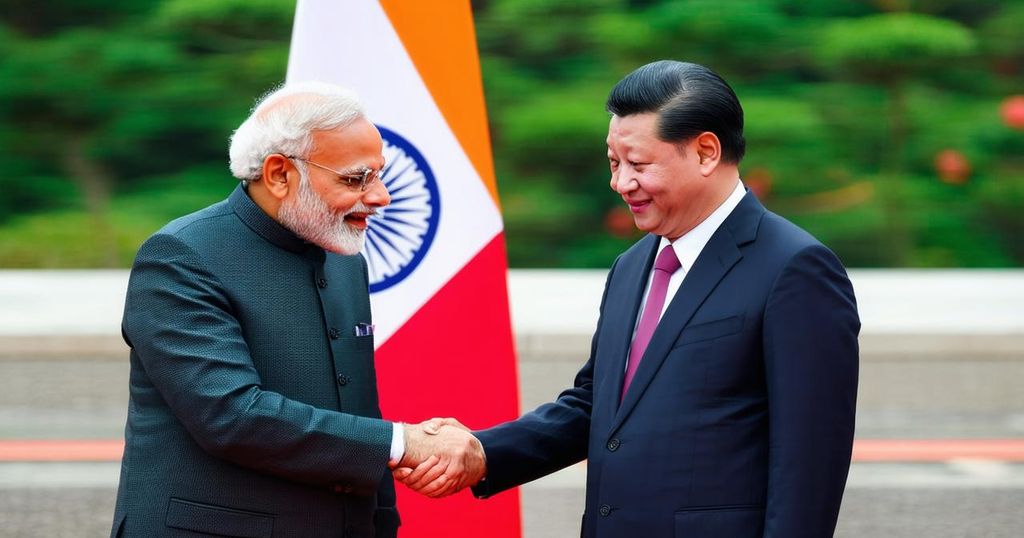A Renewed Engagement: The Modi-Xi Meeting and Easing of India-China Relations

Indian Prime Minister Narendra Modi and Chinese President Xi Jinping formally met at the Brics summit in Russia, marking a thaw in relations after years of border tensions and conflicts. The leaders pledged to resume dialogue, focusing on disengagement at the disputed border and restoring trust between their nations. Recent agreements have led to improvements in military and economic relations, with both countries emphasizing the importance of peace for regional stability.
In a significant development in Sino-Indian relations, Indian Prime Minister Narendra Modi and Chinese President Xi Jinping convened for a formal meeting on the sidelines of the Brics summit hosted in Russia. This meeting follows years of heightened tensions stemming from a bloody confrontation in the Galwan Valley in 2020 and continued disputes over their 3,440-km border. The discussions took place after both nations had recently agreed to a framework aimed at disengaging troops and resolving outstanding issues along the contested border. Modi and Xi expressed their commitment to enhancing dialogue and stabilizing relations between their countries. The Indian government has indicated progress in disengagement efforts at the border, with over seventy-five percent of issues allegedly resolved, paving the way for resumed border patrols and trust-building measures. The leaders acknowledged that maintaining peace along their contentious border is crucial for mutual respect and regional stability. The Brics summit, attended by leaders from various nations, also underscored the need for developing countries to collaborate in a less dollar-dependent trade environment. Overall, this meeting represents a crucial step towards mending relations and addressing longstanding conflicts between India and China.
India and China share a complicated historical relationship characterized by territorial disputes and military skirmishes. The two nations fought a war in 1962, which resulted in a significant territorial loss for India. In recent years, Sino-Indian relations have been further strained due to India’s revocation of the autonomy of Jammu and Kashmir in 2019, which China opposed vehemently at the United Nations. The violence in the Galwan Valley in June 2020 was particularly notable, marking a low point in their interactions, with casualties on both sides. Despite attempts at de-escalation thereafter, skirmishes continued in areas such as Sikkim and Tawang in subsequent years, affecting bilateral ties, trade, and cultural exchanges. The recent summit between Modi and Xi represents an endeavor to re-establish stability and peace after years of tension.
In conclusion, the recent meeting between Prime Minister Modi and President Xi signifies an important step towards rectifying the longstanding rift between India and China caused by historical territorial disputes and recent military confrontations. The commitment to renew dialogue and work towards a peaceful resolution of border issues demonstrates a mutual recognition of the necessity for cooperation in maintaining regional stability. As both leaders reaffirmed their dedication to fostering a healthier relationship, it is essential to observe how these discussions translate into practical actions and real progress in their bilateral ties. The outcomes of their agreements could potentially reshape not only India-China relations but also influence broader geopolitical dynamics in the region.
Original Source: www.bbc.com








